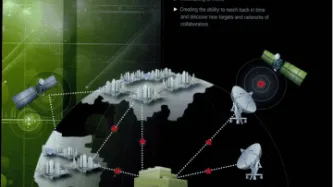Search
Content type: Examples
In November 2016, the security contractor Krytowire discovered that cheap Chinese Android phones often include pre-installed software that monitors users' locations, messaging, and contacts, and sends the gathered information to China every 72 hours. Shanghai Adups Technology Company, the Chinese firm responsible for the software, said its code had been installed on more than 700 million phones, cars, and other devices without informing users, but that it was not intended for American phones.…
Content type: Examples
In July 2018, researchers at the London-based security and mobile commerce firm Upstream Systems found that millions of cheap smartphones sold in developing countries lacking privacy protections come with pre-installed apps that harvest users' data for the purpose of targeting advertising and that can only be removed with difficulty. One such app, which Singtech includes on the thousands of smartphones it sells in Myanmar and Cambodia, as well as others sold in Brazil or made by Indian and…
Content type: Examples
In September 2018, researchers discovered that websites accessed via mobile phones could access an array of device sensors, unlike apps, which request permissions for such access. The researchers found that 3,695 of the top 100,000 websites incorporate scripts that tap into one or more sensors, including Wayfair, Priceline, and Kayak. Unlike location sensors, motion, lighting, and proximity sensors have no mechanism for notifying users and requesting permission. Ad blockers were not effective…
Content type: Examples
Google launched its first version of Android in 2009. Based on a modified Linux kernel and other open source software, Android provides the operating system for mobile phones, tablets, televisions, cars, wrist watches, and many other devices including digital cameras, game consoles, PCs, and personal video recorders. By 2017, Android had become the best-selling operating system in the world, with over 2 billion monthly active users. Even in 2009, critics warned that the operating system, which…
Content type: Examples
The Danish company Blip Systems deploys sensors in cities, airports, and railway stations to help understand and analyse traffic flows and improve planning. In the UK's city of Portsmouth, a network of BlipTrack sensors was installed in 2013 by VAR Smart CCTV, and the data it has collected is used to identify problem areas and detect changing traffic patterns. The city hope that adding more sensors to identify individual journeys will help reduce commuting times, fuel consumption, and vehicular…
Content type: Long Read
We found the image here.
When we browse the internet, go to work, drive down the street, go shopping, interact with institutions, or simply move through the city, data is collected about us.
Advanced profiling technologies answer questions we did not raise. They generate knowledge we did not anticipate, but are eager to apply. As knowledge is power, profiling changes the power relationships between the profilers and the profiled.
In a world where everything we do becomes more and more…
Content type: News & Analysis
This op-ed originally appeared in the New Statesman.
Imagine the police searching your home without good reason, without a warrant, without your knowledge. For good measure let’s also imagine that they take a full inventory of all of your possessions and store this in a secret database indefinitely.
A peculiar feature of modernity is that what we would find dystopian in the real world is banal in our virtual world. And the irony is that this can be a greater violation of our privacy and…
Content type: Press release
Key points:
Privacy International have today published a report entitled 'Digital Stop and search: how the UK police can secretly download everything from your mobile phone', based on Freedom of Information requests to 47 police forces across the UK about their use of 'mobile phone extraction' technologies, which enable them to download all the content and data from a mobile phone.
Police forces across the UK are secretly downloading data from the smartphones of people across…
Content type: Video
Content type: Explainer
Phone networks are divided between two networks: the physical and the mobile. The physical runs on the Public Switched Telephone Network (PSTN) that serves your home phone. Mobile networks are dominant in the age of communication and are used to relay mobile communications to the PSTN. The most prominent mobile networks are GSM networks (Global System for Mobile communications) and are what we use everyday to communicate with one another. Another system is known as CDMA (Code Division Multiple…








